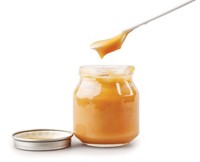Advertisement
Grab your lab coat. Let's get started
Welcome!
Welcome!
Create an account below to get 6 C&EN articles per month, receive newsletters and more - all free.
It seems this is your first time logging in online. Please enter the following information to continue.
As an ACS member you automatically get access to this site. All we need is few more details to create your reading experience.
Not you? Sign in with a different account.
Not you? Sign in with a different account.
ERROR 1
ERROR 1
ERROR 2
ERROR 2
ERROR 2
ERROR 2
ERROR 2
Password and Confirm password must match.
If you have an ACS member number, please enter it here so we can link this account to your membership. (optional)
ERROR 2
ACS values your privacy. By submitting your information, you are gaining access to C&EN and subscribing to our weekly newsletter. We use the information you provide to make your reading experience better, and we will never sell your data to third party members.
Persistent Pollutants
US FDA sets voluntary arsenic limit in infant rice cereal
Agency encourages manufacturers to keep levels at or below 100 ppb
by Britt E. Erickson
August 6, 2020

The US Food and Drug Administration has finalized guidance recommending a limit of 100 ppb for inorganic arsenic in infant rice cereal. The Aug. 5 action comes more than 4 years after the agency first proposed the limit. Although the limit is not legally enforceable, it is intended to encourage food manufacturers to reduce levels of inorganic arsenic in their products.
“It is important to note that the agency’s data show that most products on the market are already below this level,” Susan Mayne, director of the FDA’s Center for Food Safety and Applied Nutrition, says in a statement.
The FDA has been testing rice cereal for arsenic for nearly a decade. The agency claims that levels of arsenic have fallen during that time. In 2014, 53% of samples tested by the FDA exceeded 100 ppb of arsenic. In 2018, only 24% of samples exceeded that limit.
Infants and children are particularly vulnerable to neurodevelopmental problems from exposure to inorganic arsenic. The FDA believes companies can lower the amount of inorganic arsenic in rice cereal by following good manufacturing practices, such as by testing rice and rice ingredients for arsenic before they are used in infant cereals.
Consumer groups welcomed the FDA’s action as an important first step, but they urged the agency to do more to protect children from arsenic in all foods, not just rice cereal.





Join the conversation
Contact the reporter
Submit a Letter to the Editor for publication
Engage with us on Twitter